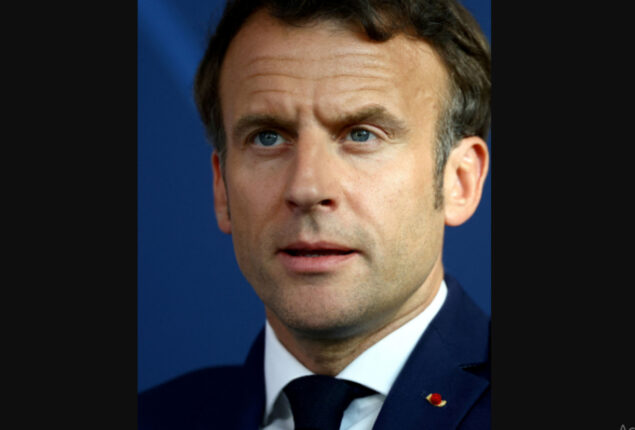France pension protests: Protesters scuffle with police over government decree reform
Firecrackers were thrown at the police. No-confidence motions have been lodged against...

Macron faces no-confidence votes in the wake of hated pension reforms
On Monday, French President Emmanuel Macron will face no-confidence votes after his plan to impose unpopular pension reforms provoked nationwide protests and opposition from parliamentarians.
Macron’s government is likely to survive, despite mounting opposition to the measures.
On Thursday, the French government invoked special constitutional powers to push through the contentious legislation raising the retirement age for most workers from 62 to 64.
French parliamentarians filed two motions of no-confidence against the Prime Minister on Friday, one from a coalition of tiny parties and one from the far-right National Rally party.
To be successful, the majority of current parliamentarians (287 in all) must vote in favor.+
If the petition is successful, French Prime Minister Elisabeth Borne will be forced to resign, and the pension reform law will be rejected. This would give French President Emmanuel Macron the choice of replacing the Prime Minister or dissolving parliament.
The attempt to depose Macron’s government is seen unlikely to succeed because the pension reforms have the support of the Republican party, making it more difficult for the other opposition parties to obtain the absolute majority required.
“There will be no majority for these votes of no confidence. Responsibly, we do not want to add chaos to chaos and let our country sink into disorder,” the leader of the Republican group Eric Ciotti tweeted.
Finance Minister Bruno Le Maire also downplayed suggestions that the vote might be successful.
“There will be no majority to bring the government down, but it will be a moment of truth,” Le Maire told the sources.
“I understand our countrymen’s fears and anxieties, but we will definitely not improve things by denying economic reality,” he added.
France, which has one of the lowest retirement ages in the industrialized world, yet spends more on pensions than most other countries, at roughly 14% of GDP, according to the Organization for Economic Cooperation.
The government claims that the current system, which relies on the working population to fund an aging population of pensioners, is no longer fit for purpose.
Yet, the protests targeted not just the pension reform, but also the constitutional power employed to compel it.
In the absence of a majority in parliament, Macron used Article 49.3, which allowed his government to get the law through the National Assembly without a vote.
Protesters and MPs have widely denounced the decision as undemocratic.
“We are facing a president who makes use of a permanent coup d’état,” Olivier Faure, leader of the French Socialist Party, told local media Thursday.
According to the Interior Ministry, 169 people were detained during Saturday’s protests around France.
Unions have called for statewide strikes and protests on Thursday in the hopes of bringing the country to a halt.
Catch all the World News, Breaking News Event and Latest News Updates on The BOL News
Download The BOL News App to get the Daily News Update & Follow us on Google News.